Why psychosis is on the rise
Latest data provides ‘concrete evidence’ of impact of Covid pandemic on mental health
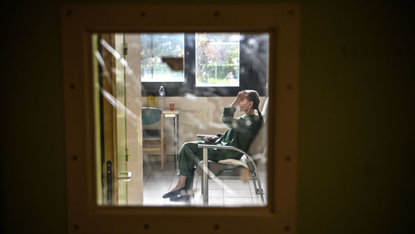
The number of people seeking NHS treatment for psychotic symptoms including hallucinations and delusional thinking has soared in the past two years, new figures show.
According to NHS data, referrals to mental health services in England for first suspected episodes of psychosis rose by 75% in the two years up until April 2021, amid what The Guardian described as “the stresses of the Covid-19 pandemic”.
The data is a “cause for alarm”, said Brian Dow, deputy chief executive of charity Rethink Mental Illness. “The pandemic has had a game-changing effect on our mental health and it requires a revolutionary response,” he added.
Subscribe to The Week
Escape your echo chamber. Get the facts behind the news, plus analysis from multiple perspectives.

Sign up for The Week's Free Newsletters
From our morning news briefing to a weekly Good News Newsletter, get the best of The Week delivered directly to your inbox.
From our morning news briefing to a weekly Good News Newsletter, get the best of The Week delivered directly to your inbox.
What is psychosis?
Psychosis is “a syndrome associated with abnormal functioning of the frontal and temporal lobes” of the brain, explained the BMJ Best Practice online support tool for healthcare professionals.
The NHS website defined psychosis is a mental health condition that causes people “to lose some contact with reality”. They may hear or see things that others cannot see or hear, or believe things that are not based on reality.
Psychosis can be a symptom of other mental health conditions, including schizophrenia, bipolar disorder or severe depression. But it can also be a “one-off”, said The Guardian, with potential triggers including a traumatic experience, stress, or drug and alcohol misuse.
Sign up for Today's Best Articles in your inbox
A free daily email with the biggest news stories of the day – and the best features from TheWeek.com
Clinical scientist Dr Marta Di Forti King’s College London’s Institute of Psychiatry told The Times that “there is a clear, evidenced link” between cannabis use and psychosis, with an increasing number of skunk smokers reporting psychotic symptoms in recent years.
Some prescription drugs can also cause a psychotic episode, as can physical conditions such as a brain tumour.
The symptoms
The two main symptoms of psychosis are hallucinations and delusions. Hallucinations cause a person to have a sensory experience that does not exist outside of their mind. Hearing voices is the most common example, but people may also see, feel, smell or taste things too.
A delusion is when someone holds strong beliefs that conflict with reality, such as believing that there’s a conspiracy to cause harm to them.
People experiencing psychosis may also experience concentration and memory problems and may struggle to make decisions.
Increasing cases
The Royal College of Psychiatrists reported last month that a record 1.5m people received NHS mental health support in June, a year-on-year increase of 12.4%. And a further 1.6m were waiting for treatment.
The steep increase “raises additional concerns about the pressures the younger generation have faced during the pandemic”, said Rethink Mental Health’s Dow, who told The Guardian that “first presentations of psychosis typically occur in young adults”.
NHS data shows that the number of people referred to mental health services for a first suspected episode of psychosis hit 12,655 in July, up by 53% from 8,252 in July 2019.
According to data analysed by the charity, case rates accelerated significantly after the first national lockdown. The Rethink team “says the statistics provide some of the first concrete evidence to indicate the significant levels of distress experienced across the population” during the global health crisis, the newspaper reported.
The findings of a University of Queensland study published in The Lancet earlier this month show that rates of depression and anxiety - both of which have been linked to psychosis - increased dramatically worldwide in 2020, by 28% and 26% respectively. The scientists analysed data from pre-existing studies to estimate the impact of Covid on the mental health of the world population, and concluded that the pandemic triggered an additional 53m cases of major depressive disorders and 76m of anxiety last year.
“Countries with high Covid-19 infection rates and major reductions in the movement of people – a consequence of measures such as lockdowns and school closures – were found to have the greatest increases in prevalence of major depressive disorder and anxiety disorders,” said lead researcher Dr Damian Santomauro.
Separate research findings published in April found that Covid patients had a significantly increased risk of developing brain disorders within six months of being infected. The analysis of data on 236,379 Covid survivors revealed that one in three were subsequently diagnosed with a neurological or psychiatric condition.
And people who suffered the most severe coronavirus infections were the most likely to be affected. The University of Oxford study, outlined in a paper in The Lancet, found that such disorders occurred in 62% of people who during their Covid battle experienced encephalopathy – described as “delirium and other altered mental states”.
Treatment
Anyone with psychotic symptoms is advised to seek treatment from specialised services as soon as possible. The “assessment of psychosis includes a physical examination, a complete psychiatric and medical history, and a laboratory work-up”, according to the BMJ Best Practice site.
Treatment for psychosis “will vary, depending on the underlying cause”, said the NHS website, but may include antipsychotic medications, which “work by blocking the effect of dopamine, a chemical that transmits messages in the brain”.
Early intervention teams of healthcare professionals working with people who have experienced their first episode of psychosis may also provide “social, occupational and educational interventions”, and psychological therapies such as cognitive behavioural therapy.
In some cases, patients with psychosis will be admitted to psychiatric hospital for specialised care.
-
 5 contentious cartoons about Matt Gaetz's AG nomination
5 contentious cartoons about Matt Gaetz's AG nominationCartoons Artists take on ethical uncertainty, offensive justice, and more
By The Week US Published
-
 Funeral in Berlin: Scholz pulls the plug on his coalition
Funeral in Berlin: Scholz pulls the plug on his coalitionTalking Point In the midst of Germany's economic crisis, the 'traffic-light' coalition comes to a 'ignoble end'
By The Week UK Published
-
 Joe Biden's legacy: economically strong, politically disastrous
Joe Biden's legacy: economically strong, politically disastrousIn Depth The President boosted industry and employment, but 'Bidenomics' proved ineffective to winning the elections
By The Week UK Published
-
 Avatar therapy: a groundbreaking treatment for psychosis?
Avatar therapy: a groundbreaking treatment for psychosis?In the Spotlight Study reveals digital characters can help patients 'push back' against distressing voices
By Irenie Forshaw, The Week UK Published
-
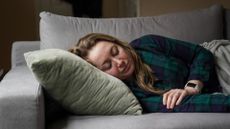 Long Covid: study shows damage to brain's 'control centre'
Long Covid: study shows damage to brain's 'control centre'The Explainer Research could help scientists understand long-term effects of Covid-19 as well as conditions such as MS and dementia
By The Week UK Published
-
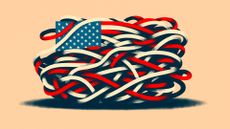 4 tips for coping with election anxiety and stress
4 tips for coping with election anxiety and stressThe Week Recommends Election news is hard to circumvent. But navigating the politically charged season does not have to be stressful.
By Theara Coleman, The Week US Published
-
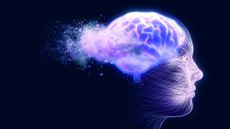 The 'game-changing' treatment for schizophrenia
The 'game-changing' treatment for schizophreniaThe Explainer US poised to approve KarXT as new antipsychotic treatment for disorder, which could offer reduced side-effects
By Harriet Marsden, The Week UK Published
-
 How the brain changes during pregnancy
How the brain changes during pregnancyIn The Spotlight 'Baby brain' has some scientific basis but not in the way we first thought
By Chas Newkey-Burden, The Week UK Published
-
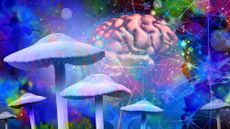 Psychedelic drugs and treating mental illness
Psychedelic drugs and treating mental illnessThe Explainer Scientists claim hallucinogenics could help treat depression and anxiety, but not everyone is convinced
By Elizabeth Carr-Ellis, The Week UK Published
-
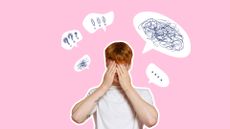 Young adults are in a mental health crisis. Why is little being done?
Young adults are in a mental health crisis. Why is little being done?In the spotlight The kids are, in fact, not at all alright.
By Theara Coleman, The Week US Published
-
 FDA OKs new Covid vaccine, available soon
FDA OKs new Covid vaccine, available soonSpeed read The CDC recommends the new booster to combat the widely-circulating KP.2 strain
By Peter Weber, The Week US Published